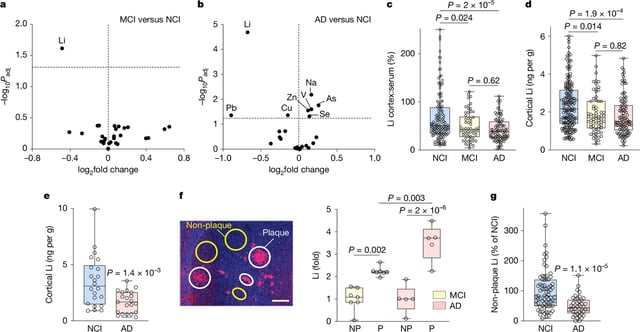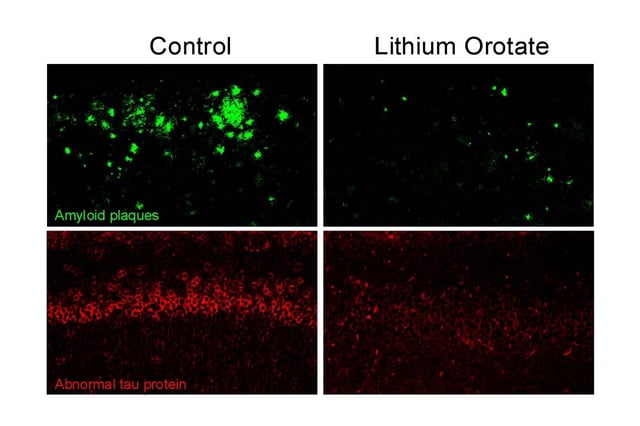Overview
- Postmortem analyses showed progressively lower lithium from normal cognition to mild cognitive impairment to Alzheimer’s, with much of the element sequestered in amyloid plaques and lithium the only metal that differed markedly across groups.
- Halving dietary lithium in mouse models accelerated amyloid-beta and tau accumulation, increased brain inflammation, weakened synaptic connections, and worsened memory performance.
- The study implicates GSK3β overactivity when lithium is low as a mechanism that drives abnormal tau behavior and tangle formation.
- Lithium orotate, designed to evade plaque sequestration, prevented pathological protein buildup, reduced inflammation, preserved connections, and restored memory in some mouse experiments at roughly one-thousandth of psychiatric doses.
- Authors emphasize the findings are preclinical and call for controlled trials to test lithium measurement as an early biomarker and to assess lithium orotate’s safety and efficacy in people, cautioning against self-supplementation.


